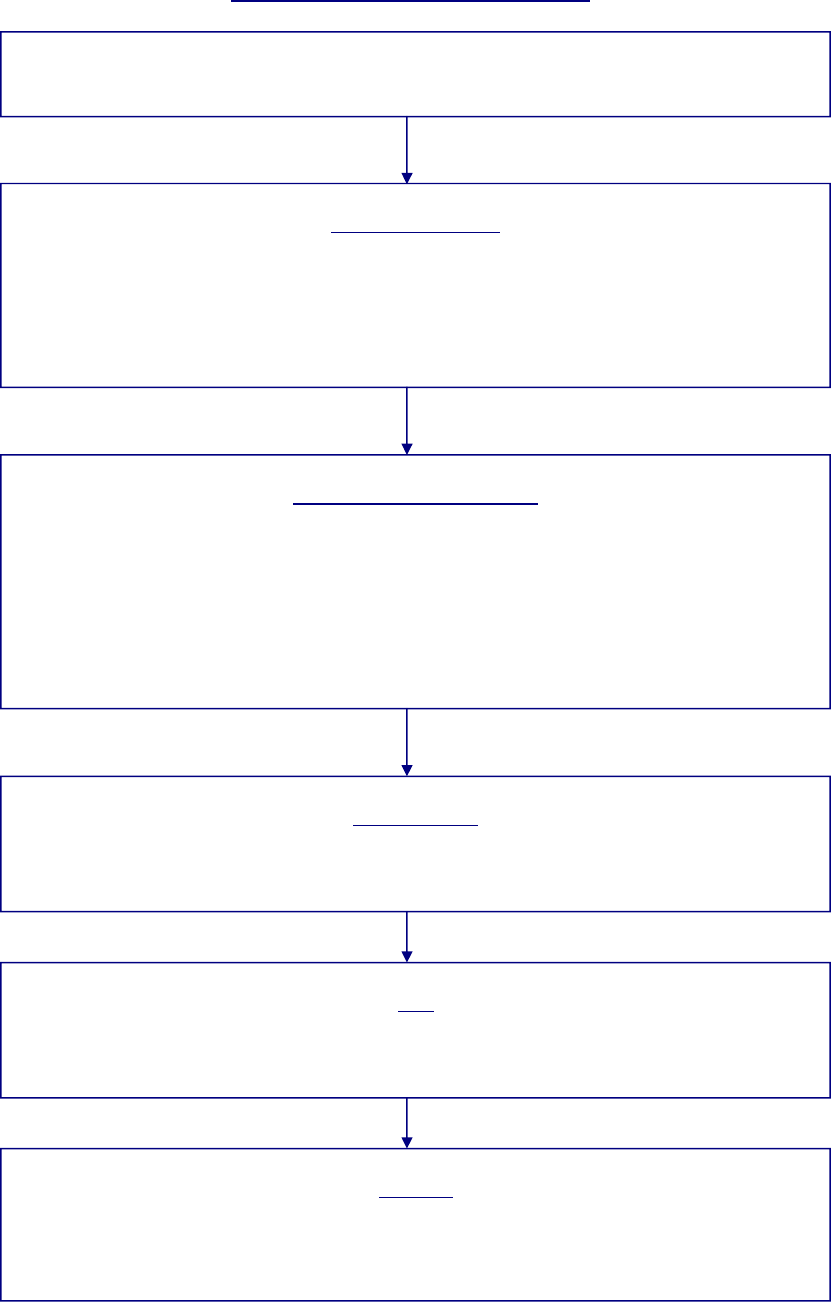
© Naomi Mehmet
GUIDE TO LANDLORD AND TENANCY LAW IN THE TRNC
The Law governing landlord and tenancy in the TRNC is the Rent (Control Act) 17/1981 and sets out
thirteen grounds on which the landlord can recover possession of the property. These are set out
below. In order for a landlord to be able to recover possession of the property, one of these grounds
must exist. Even where one or more of these grounds exists, an application for an eviction order must
be obtained by the landlord from the court unless the tenant vacates the property of his own free will
and returns possession to the landlord. It is not lawful for a landlord to re-take possession simply by
entering the property and changing the locks or by force and to do so constitutes a criminal offence.
Ground (1) Delay in paying rent
If the tenant fails to make payment of rent when it falls due. Rent sent by registered post is considered
as a offer to pay.
Ground (2) Substantial breaches of other obligations
If the tenant has breached a condition set out in the tenancy agreement or failed to perform his
obligations under the tenancy agreement.
Ground (3) Tenant is causing nuisance to neighbouring properties
If the tenant or anyone living with the tenant is causing nuisance to the neighbouring properties or is
using the property for illegal and/or immoral purposes, the landlord can acquire vacant possession
using this ground.
Ground (4) Tenant’s failure to repair
If the tenant or someone living with the tenant, has damaged the property wilfully or through neglect.
Ground (5) Tenant wishes to vacate the property
If the tenant has sent a notice terminating the tenancy.
Ground (6) Sub-letting without the permission of the landlord
If the tenant is sub-letting the whole or part of the property and profiting from this without the
permission of the landlord then the landlord can acquire vacant possession using this ground.
Ground (7) Landlord’s intention to occupy the holding for his own business or a residence
The landlord must show that he has a reasonable need to acquire vacant possession of the property
for use by himself, his spouse or any children above the age of 18 within reasonable explanation. The
court will take into consideration whether or not the landlord or the tenant has other property available
to use.
Ground (8) Tenant is an employee of the landlord and the employment has ended
If the tenant is an employee of the landlord and the employment has ended the landlord can use this
ground to acquire vacant possession of the property in order move a new employee in.
Ground (9) The landlord intends to demolish the property or carry out significant
renovation work and could not reasonably do so without obtaining possession
Naomi Mehmet & Partners
Advocates and Legal Advisers
© Naomi Mehmet
If the landlord intends to demolish or the property or carry out significant renovation work to the
property which would require the tenant to vacate the property, the landlord can claim vacant
possession using this ground on the condition that he gives at least three months’ notice to the tenant
and can provide to the court the document showing building permission has been acquired.
Ground (10) Vacant possession is required for a development project in accordance with the
law
Ground (11) The property is subject to a compulsory acquisition or nationalisation order
Ground (12) The property is needed by a local authority for a reasonable amount of time
If a local authority needs to use the property for a reasonable amount of time in order to fulfil their legal
duty and the court is of the opinion that this is for public benefit the court can order that this is a
ground to obtain an eviction order.
Ground (13) Reasonability and availability of Alternative accommodation
If the court believes that it is reasonable to grant the eviction order and that that the tenant has
alternative accommodation available, the court can make an order on this basis.

© Naomi Mehmet
PROCEDURE FOR EVICTING A TENANT
STAGE 1
Pre-commencement
Sending a legal notice to the opposite party
Collecting relevant documents and/or information
[For details please see Box 1. ‘STAGE 1 Pre-commencement’
If the tenant fails to vacate, then see ‘STAGE 2’ below.
STAGE 2
Commencement of the action
Payment of initial retainer towards legal costs
Drafting of a simple statement of claim and filing it at the district court and serving this on the
Defendant
Issuing and serving detailed particulars of claim
Defendant files defence
Filing a reply to the defence
[For details please see Box 2. ‘STAGE 2 Commencement of the action’
Can you rely on one or more of the grounds for eviction set out in
the Rent (Control Act)
17/1981?
If so, please see ‘STAGE 1’ below
STAGE 3
Interim matters
Directions or case management conference where directions are given by the judge
[For details please see Box 3 ‘STAGE 3 Interim matters’]
STAGE
4
Trial
The trial takes place when the judge provides a date
[For details please see Box 4 ‘STAGE 4 Trial’]
STAGE
5
Post-trial
Appeal, if applicable
Enforcement proceedings, if required
[For details please see Box 5 ‘STAGE Post-trial’]

© Naomi Mehmet
BOX 1
STAGE 1
Pre-commencement
In most cases, the first step is to draft and serve a legal notice on your behalf to the tenant at the
property address provided by you to formally terminate the Tenancy Agreement and to request
vacant possession and any outstanding rent arrears (if applicable). After the service is effected the
tenant will then have a set number of days to respond starting from the date of service (depending
on the terms of the tenancy agreement, if applicable). The tenant is under no obligation to respond
to our legal notice. If the tenant does not respond and the period for response has expired the only
option will be to commence legal action against the tenant for the relevant cause of action
depending on the facts of your case to try and obtain an eviction order plus rent
arrears/compensation for your losses (as applicable)
If you decide to commence legal action against the tenant we will require the following documents
and/or information from you:-
Original tenancy agreement with the Stamp Duty paid (if applicable);
Full postal address for the property at which the tenant is residing;
Copy of title deeds, or Contract of Sale, in the name of the landlord (as applicable);
Details and copies of any unpaid utility bills;
Where applicable, confirmation of the months for which rent has not been paid and the total
amount outstanding;
Copy of landlord’s passport or identity card; and
Completed Power of Attorney so that we can represent you in the litigation (upon receipt of
the landlord’s passport or identity card copy, we will prepare this on your behalf and provide
you with instructions as to how to certify this and return it to us).
BOX
2
STAGE
2
Commencement of the action
If we do not receive any further contact from tenant and the time period given in the legal notice for
him/her to comply and/or reply to us has expired, we will have no option but to proceed with making
an application for obtaining an eviction order.
The next stage is for us to issue and serve a simple statement of claim and detailed particulars of
claim which is to be served on the tenant by the court bailiffs. This can take between 10-20 days to
be served. Although we would be following up with the court bailiffs, this process is outside of our
control. Once service has been effected, the tenant has 10 days to acknowledge service. If the
Defendant fails to acknowledge service within this time, then we will then file an ex-parte application
to prove the case in default and obtain judgment in the absence of the tenant. In the event that the
Defendant does acknowledge service and obtains his own legal representation then he/she will
have a further 14 days (maximum total 24 days from the date of service) to file a defence – although
it is possible for the judge to grant the Defendant further adjournments in the event that more time is
required for the Defendant to file the defence. Once the defence has been filed, we would review
this on your behalf and file a reply to the defence, if required.
In terms of legal costs, in order to commence eviction proceedings we will need an initial retainer of
£1000-£1500 The total costs may be in the region of £2000-£2500 or more, plus disbursements,
depending on the time spent on your case.
BOX
3
STAGE
3
Interim matters
There will then be various directions hearings for the judge to explore the possibility of the parties
reaching an out of court settlement or to review the facts and evidence and to give directions for
trial.

© Naomi Mehmet
This guide has been prepared by Advocate Naomi Mehmet of Naomi Mehmet & Partners
For more information, please contact Naomi on the details below
Email: [email protected]
Tel: 0090 392 816 0440
Fax: 0090 392 815 0702
Web: www.nmplegal.com
This guide is intended for general information purposes only and does not constitute legal or professional advice.
Naomi Mehmet & Partners does not accept and specifically excludes liability for any loss or harm which may
occur to any person as a result of relying on or otherwise using this information.
BOX
4
STAGE
4
Trial
At the trial, both sides will call witnesses to give evidence and the opposite party will have the
opportunity to cross-examine the witnesses. Judgment may be given immediately or at a future
date. As well as a decision whether or not to grant the eviction order, the judge will also decide the
amount of compensation to be awarded (i.e. for rent arrears and unpaid utility bills etc).
In the event that your case is successful, the tenant may be ordered to pay your costs, but the
amount awarded is at the discretion of the judge and may not cover the total amount which you
have paid in costs. Further, if a costs order is made against the tenant and the tenant fails to comply
and make payment, this will also be subject to enforcement proceedings as outlined in Box 5 below.
Please note that eviction proceedings can be lengthy unless the tenant leaves on their own accord
once proceedings are commenced – if the tenant appoints a lawyer and defends the proceedings,
the proceedings could take around a year, or possibly longer, to conclude.
BOX
5
STAGE
5
Post- trial
If you are granted an eviction order and/or a judgment for loss of rental income and the tenant fails
to comply with order and the judgment and make payment, you would have to commence
enforcement proceedings. If the tenant fails to vacate after the eviction order is made, an application
is submitted for the tenant to be forcibly removed by the court bailiffs. If the tenant fails to comply
with the monetary part of the judgment (i.e. any order for the payment of rent
arrears/compensation/legal fees), an application for enforcement against the tenant’s assets can be
commenced. Initially, an application for enforcement against movable assets is filed. If the tenant
has, for example, any personal effects or a car which can be seized and sold an application for this
to take place can be submitted. If no movables are found, an application for enforcement against
immovable property in the name of the tenant (if any) can be filed. An application for payment by
instalments can be filed if it can be shown that the tenant has an income and can afford to make
payment by instalments. It may not be possible to actually recover the monetary part of the
judgment if the bailiffs are not able to locate the tenant or find any property in tenant’s name which
can be seized or if the tenant does not have sufficient income to make payment by instalments.
Enforcement proceedings can also be lengthy and additional legal fees would be incurred.
